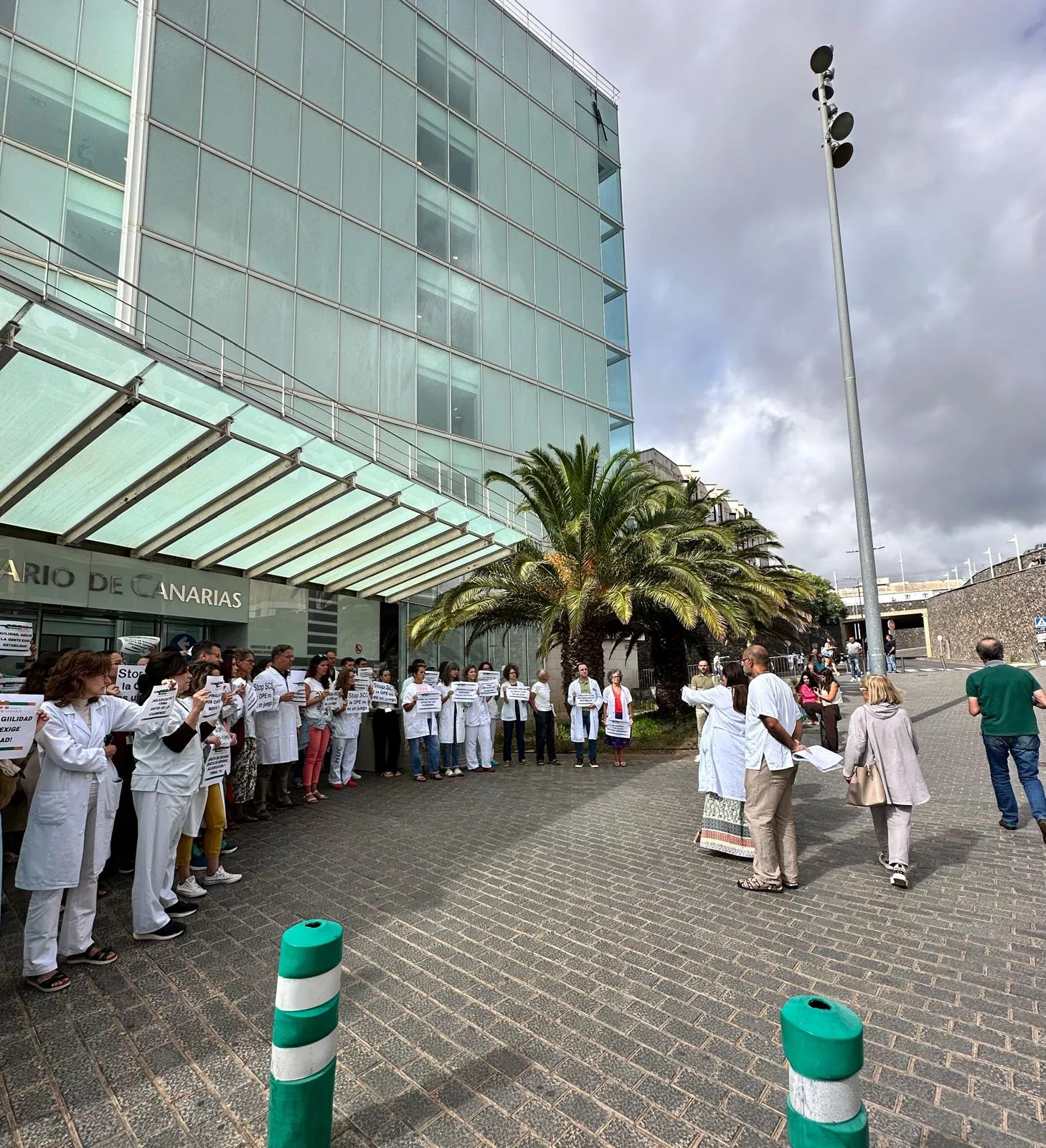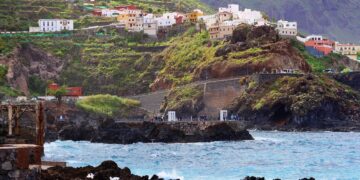Canary Islands Doctors Launch Strike Demanding Merit-Based Assignments

Striking for Transparency and Fairness
Doctors in the Canary Islands began their strike on Tuesday, calling for the publication of merit-based lists, particularly regarding the destinations assigned to them, prior to the examination. Sporting protest banners reading “the OPE is not a game” and “without lists and appointments, do not expect understanding,” they demonstrated outside hospitals throughout the islands. They have vowed to continue their strike until Friday “if they are not invited to dialogue.” A major demand is for those who have secured positions to have clarity on their assigned locations.
The Canary Islands Health Service (SCS) deemed the strike called for on Monday as “senseless.” SCS Director Adasat Goya stated that information circulated by certain unions regarding the stabilisation process was contradictory, asserting that the administration “guarantees the rights of personnel.” It is noteworthy that some services remain fully staffed despite the strike.
Guaranteed Positions
Goya emphasised that the results of the merit competition have already been published, securing positions for those who passed, pending only document verification. He stressed that those on the final lists “already have guaranteed positions,” with only the specific destinations pending assignment. In his view, unions have created confusion by demanding clarity on exact locations before the exam, a step that, as he explained, comes only in a subsequent phase of the process.
Union Perspectives
Levy Cabrera, General Secretary of the Medical Union of the Canary Islands, told Atlántico Hoy that it is inaccurate to claim that knowing the destinations is insignificant. “The majority of positions are allocated in the first phase, which is the merit competition. There, you are informed of your fixed position based on merit and the destination assigned to you. If it is not the location you desire, you can voluntarily participate – supported by your merit competition application – for the extraordinary stabilisation exam,” he detailed.
Cabrera pointed out that 80% of positions are allocated through merit, 15% through the extraordinary stabilisation exam, and the remaining 5% through the ordinary opposition exam. The distinction he noted is that merit competitions assess positions created before 2016 that have been occupied for over five years, while extraordinary stabilisation competitions pertain to positions created between 2017 and 2019, and the ordinary opposition exam applies to those established between 2019 and 2020. “This is why there are so many positions for merit, and while the process may continue with the merit competition and extraordinary stabilisation opposition, many professionals will be forced to take an exam unnecessarily, as the final list of all merit-based entries—with their destinations—has yet to be released,” he evaluated.
The General Secretary emphasised that the vast majority wish to remain where they currently work, notably in hospitals, rather than in Primary Care. “There are individuals with 15 or 20 years of service in Los Silos or Adeje who want to come to Santa Cruz or La Laguna. They are compelled to stabilise where they are, or risk entering a second round. If they do not request their position while working, available places might even disappear on the island and be allocated elsewhere.”
Support for Exam Implementation
Cabrera assured that they are not opposed to examinations being conducted, but they felt it was premature given that they were announced within the same month. “We proposed that they take place during the weekends in October, or at the latest, early November. We have been waiting for two years; what is another month to release the definitive list with the destinations for those going through merit?” he questioned. He affirmed that the same would apply to the remaining categories. “They now acknowledge that they have made mistakes and present it as an opportunity for those on merit to choose, if they wish, one of the positions available from the extraordinary stabilisation opposition exam, while claiming that in other categories they will resolve merit assessments with destinations first and then proceed with the stabilisation opposition phase and ordinary opposition,” he insisted.
Minimum Services in Place
The Health Department of the Canary Islands Government has established minimum services to be maintained during strikes called by medical and healthcare staff within the Canary Islands Health Service from 23 September 2025, motivated by ongoing stabilisation processes. The agreement stipulates that 100% of urgent healthcare assistance must be guaranteed, both outpatient and at home, including pharmaceutical prescriptions, as well as the activities of Medical Oncology, Radiation Oncology, Dialysis, Day Hospitals, and Hospital Pharmacy.
Scheduled surgeries for oncology patients and those with non-delaying pathologies are also to be guaranteed, in addition to assistance, prevention, and diagnosis of COVID-19. In Primary Care, there will be one family doctor per team, increasing to one additional doctor in areas with between 10,000 and 30,000 users, and two more in regions with over 30,000. Emergency services will maintain a full complement. In specialised care, minimum services will match those on Sundays and public holidays, fully guaranteeing urgent and critical activities. Hospital and health service managers will be responsible for designating staff required to fulfil these minimum service obligations and communicating this to the individuals concerned.















